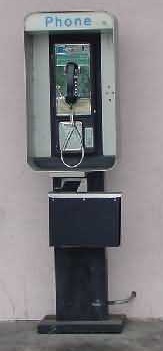
Sopranos fans may remember Tony getting his hands on a new cell phone and having the GPS function ripped out. You’ll forgive Palm and Windows Mobile execs if they feel like doing the same.
As Google’s Android adds features every week, the convergence between phone and Largest Search Company Ever blurs fast. Word out of Google now is that phones using Android will change the search results based on the phone’s location to a degree of granularity we never saw with computers. If I type the word “pizza” in a Google session on my computer, I’ll receive results about local pizza restaurants, not necessarily about pizza recipes, pizza stores, frozen pizza or anything other than a ranking that can eventually be monetized or propel the company into a data leadership role no other company can match. Now phones with Google’s Android operating system do the same thing. Using Google’s Search Suggest feature, the company suggests that
users in the Boston metro area begin typing “Muse”, suggestions such as “museum of science boston” and “museum of fine arts boston” are provided because people near Boston frequently look for these very popular museums
For now, people with Android phones have to opt-in to the service by visiting “Settings” on their search page and checking off “Allow use of device location”. There is no word from Google on how it will use the convergence of the demographics it collects about you, your real-time physical location from your Google Microchip phone, the search information you’re presented and your subsequent real-time actions including calling someone, texting someone, walking to the museum (and just how long did that take you by which route so we can update Google Maps’ walking directions?). Perhaps Tony Soprano had the right idea after all.
